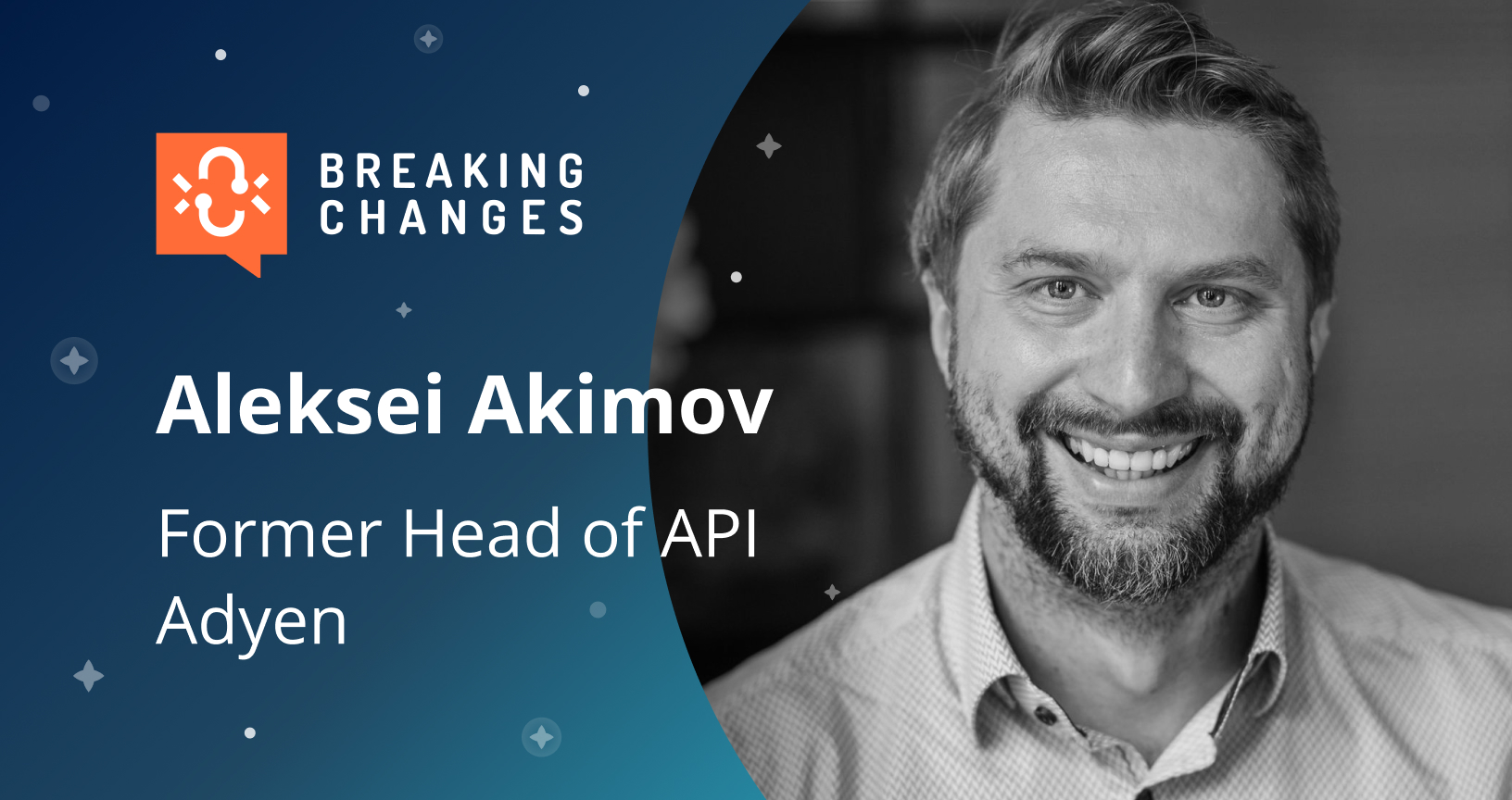“Breaking Changes” with Aleksei Akimov: Becoming API-First in the Payment Industry
The payment API industry is a highly competitive space, so I was happy to get to sit down with Aleksei Akimov, former head of API at Adyen, to launch season two of Postman’s Breaking Changes podcast. The episode with Aleksei was all about Adyen’s journey to become an API-first company within the payment industry.
I’ve talked to almost every payment API provider out there, and I find that I learn something new from every conversation. So you can expect to see me lining up more Breaking Changes payment API conversations to learn more from API leaders like Aleksei.
Aleksei had been at Adyen for most of the journey, so I felt it was important to capture his story and share how he helped define the company’s API-first journey, how they viewed the API lifecycle, and the role that open source tooling and standards played in their success.
From tech writer to head of API
Aleksei began as a tech writer at Adyen, and his experience at the frontline of the API documentation in the Adyen developer portal shaped his belief in moving the company more towards being API-first. He has a pretty pragmatic view of API-first, including design-first and code-first within the definition of API-first, and an understanding of the importance of having a shared view of the API lifecycle on the ground floor.
Aleksei was the feedback loop between Adyen API producers and consumers, feeling the pain of what it took to onboard with the API and put it to work in the many different global markets where Adyen is available. This valuable experience would shape how Aleksei and his team viewed API-first and moved the company towards an API-first mindset.
Being API-first helps companies navigate regulations
During our conversation, Aleksei talked about the role that developer tooling plays in helping define the API lifecycle, and how open source specifications, standards, and tooling played an essential part in stitching together their API-first platform—meeting the needs of their consumers.
He echoed what I hear from other companies who say that being API-first is helping them navigate the various laws and the regulatory landscape they face in order to offer digital payments in many different countries and regions. He provided me with another valuable view on the government’s role in shaping the API landscape beneath business sectors, and why API-first helps alleviate friction with regulators.
These are lessons I just can’t get enough of when it comes to conversations I have here on Breaking Changes with API practitioners from one of the most heavily regulated sectors—the financial sector.
API awareness leads to greater business success
Aleksei and I have a shared passion for APIs. He truly believes in them as I do, and he genuinely wants to do good with APIs. Like me, he believes that everyone should have an awareness of APIs, even if you aren’t a developer or someone who is technical in nature. Payments are a fundamental unit of doing business, and for people to be successful in business, they need to have a certain level of awareness of the flexibility and interoperability that payment APIs provide.
The more you know about not just APIs, but also Stripe, Paypal, Adyen, and other providers, the more awareness and control you will have over your business finances. You may not understand how every aspect of the financial system works, but the more awareness you have of the inner workings and how it all flows, the greater chance you’ll have at successfully doing business globally in a digital age. Aleksei provided us with his compelling view of why APIs matter in today’s business landscape.
You can tune in and subscribe to the Breaking Changes podcast on Spotify, Apple Podcast, Google Podcast, and Amazon music, or watch it on Youtube for more details.

What do you think about this topic? Tell us in a comment below.